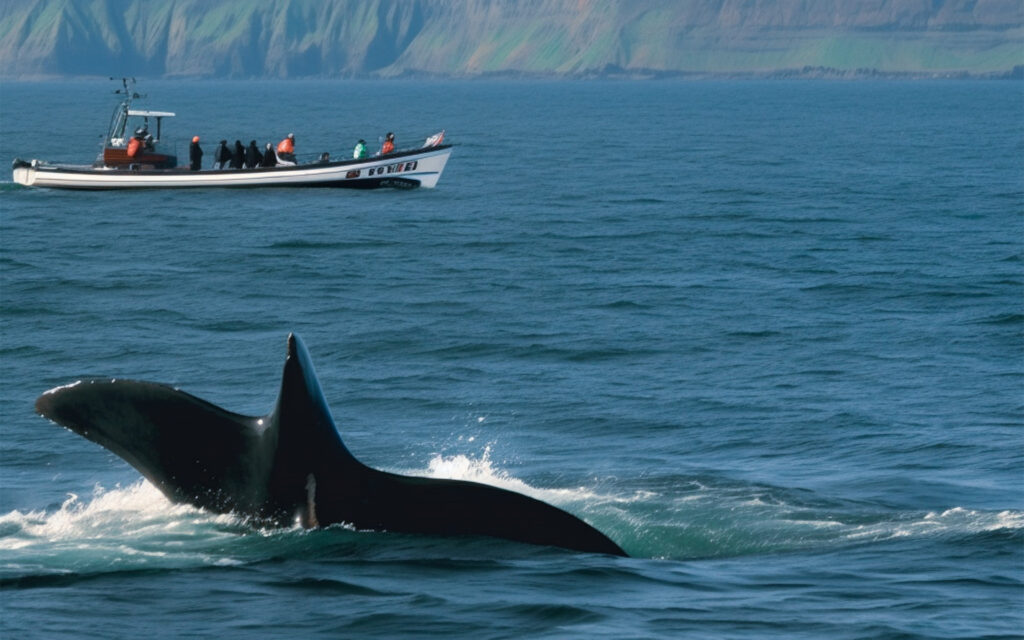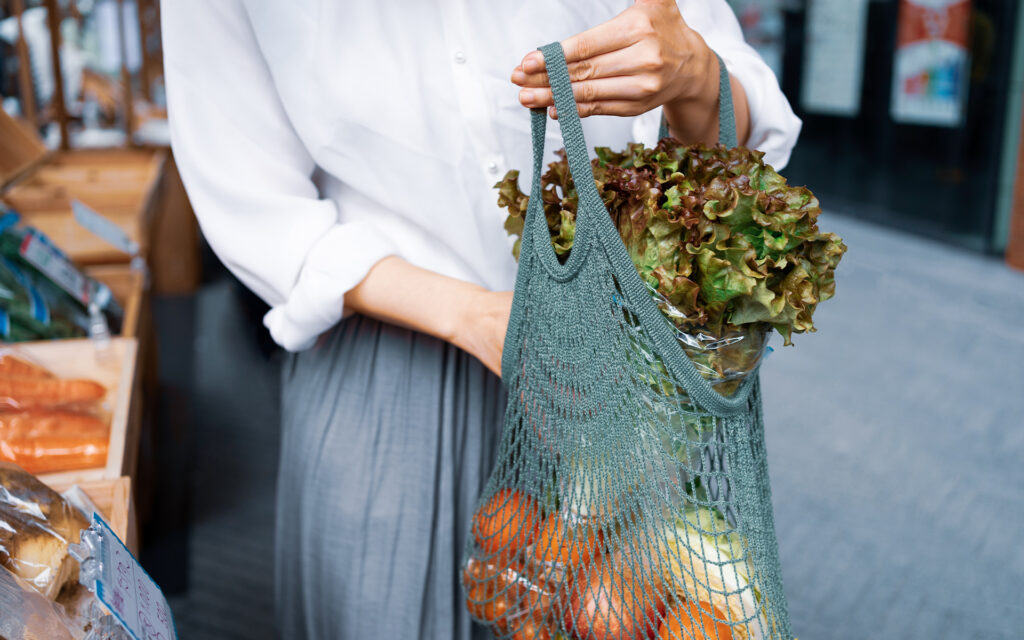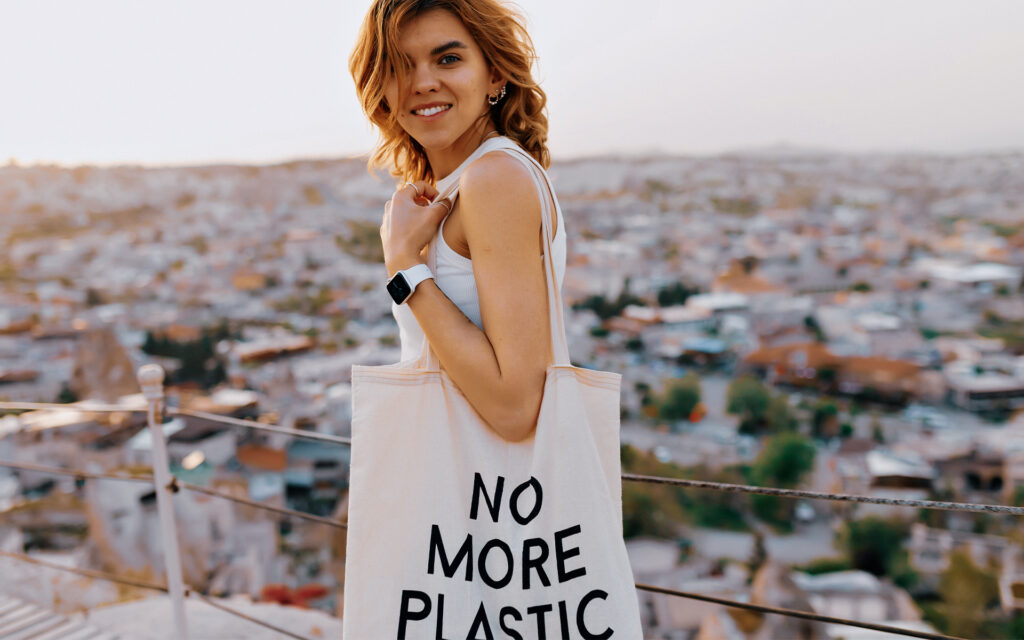Documentaries exploring issues of climate change are increasingly shedding a light on the role that individuals can play in making a difference. The controversial ‘Sea-spiracy’ undertakes a thorough analysis of the state of the world’s oceans and seas, unpacking issues of overfishing, whale-hunting, and fish farms to name but a few.

The documentary details corruption within both the fishing industry and within local, national and international governance, as well as across charities and lobby groups, highlighting how deep-seated the problems that our seas and oceans face truly are. But the message at the end of the documentary was not an encouragement of protest against governments and the companies facilitating the depletion of our oceans. The final message of the 90-minute film was a plea to the viewers, a plea to stop, think, and go vegan. Reduce the demand for fish and animal products, you reduce the amount of fishing in the oceans.
When I first watched this film, back in 2021 when there was a considerable hype around the topic, I felt slightly underwhelmed by the final message. The film has spent its entirety exposing and criticising the practices of governments, corporations and short-sighted charities, and how they contribute to the poor state of our oceans today. Putting the pressure onto the individual seemed at the time a cop-out. Why should my solo actions be the key to solving the ills of the oceans? Yet understanding and appreciating the impact of individual decisions, whilst may not seem the most revolutionary course of action at the time, is often what gets corporations and governments to sit up. When individual action becomes collective, consumer power starts forcing bigger institutions and bodies to take a look at their own practices to meet the expectations of those who they depend on for profit and support.

Consumer Demand and Market Influence
One of the primary ways in which consumers exert power is through their demand for sustainable products and services. As consumer awareness and environmental consciousness grow, there is a corresponding shift in purchasing behaviour. Consumers are increasingly seeking out eco-friendly alternatives, products with reduced carbon footprints, and ethically sourced goods. The rise in plant-based milks is a strong example of how consumer behaviour is disrupting the dairy industry. It accounts for 8% of ‘milk’ sales in 2020, and expected to double in demand by 2025.
This rising demand for sustainability sends a powerful signal to businesses. To remain competitive, companies must adapt to evolving consumer preferences. They are compelled to incorporate sustainable practices into their operations, supply chains, and product offerings. The consumer’s power lies in their ability to influence market dynamics and shape corporate behaviour.

Driving Innovation and Technological Advancement
Consumer power extends beyond influencing existing industries. Through their demand for sustainable options, consumers drive innovation and technological advancement. As the market shifts towards sustainability, businesses are pushed to invest in research and development to create new and improved sustainable technologies. For instance, the demand for renewable energy sources has led to significant advancements in solar, wind, and hydroelectric power. In the UK, a 2021 report by EY revealed 62% of consumers are more likely to purchase a product or service that is sustainable, alongside 76% rather buying and using sustainable energy generated in their own community. Consumers have played a crucial role in this transition by supporting and adopting these technologies, and so by embracing sustainable innovations, consumers contribute to a cleaner and more resilient energy future.

Raising Awareness and Influencing Policy
Consumers possess a unique ability to raise awareness and influence policy decisions. Through social media platforms, grassroots movements, and collective action, they can shine a spotlight on critical environmental issues. By amplifying their voices and joining forces, consumers bring attention to sustainability challenges and advocate for change.
Moreover, consumer activism can influence policymakers. When individuals collectively demand sustainable practices, governments are more likely to enact regulations that support environmental goals. Consumers can engage in campaigns, sign petitions, and participate in advocacy efforts to create a groundswell of support for sustainable policies.
Consumer power goes beyond economic influence; it also shapes cultural norms and societal values. By making sustainable choices, consumers set an example for others and inspire a collective shift in behaviour. When sustainable practices become the norm, they create a ripple effect that encourages others to follow suit.
Reusable shopping bags, once considered a niche choice, have become widely adopted due to consumer demand. This shift in behaviour has led to reduced plastic waste and transformed the way we perceive everyday actions. By normalising sustainable habits, consumers influence broader cultural change and pave the way for a more sustainable world.

Towards Collectivity
In the transition towards sustainability, the buck should not stop with the individual. There is still a huge amount of pressure and penalising that should be focused on governments, organisations, and multinational corporations that have the influence and resources available to prevent a descent into further climate chaos. Nevertheless, underestimating the power of the individual in shaping industries and administrative action serves to ignore how much change can be created through everyday switches in our behaviour, towards a more eco-friendly end. A combination of both is vital in realising these shifts in the direction of sustainability.





